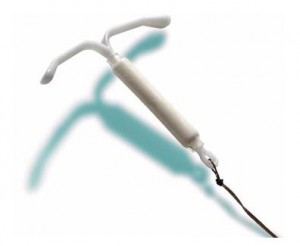FREE NATIONWIDE CASE EVALUATIONS: CALL 1-800-632-1404
In December 2013, a 27-year-old Missouri woman filed a product liability lawsuit against Bayer Pharmaceuticals, claiming that she had to undergo a painful surgical removal of Mirena IUD after the device migrated following insertion. The plaintiff has sued Bayer seeking $75,000 in damages for strict product liability, which includes
- Failure to warn
- Design and manufacture defects
- Negligent misrepresentation
- Breach of warranties
- Fraud by concealment
The lawsuit claims that merely a year after the plaintiff had got the device inserted, she suffered extreme complications, including pain and discharge. She asserts that she had to undergo several sonograms to detect the exact position of the IUD, which had surprisingly migrated from its position inside the uterus to the endometrium and then again to the left side of the abdomen.
Blaming the manufacturer for designing an “unreasonably dangerous and defective product,” the claimant argues that these complications had cost her physically, emotionally, and financially, and she had to incur huge expenses on medical care and treatment.
Mirena Lawsuits
The growing number of Mirena litigations against Bayer only means trouble for the manufacturer, which is being blamed for introducing the defective product in the market and failing to include sufficient warnings for users. Plaintiffs across the country claim that the intrauterince device has arguable flaws, which required them to undergo additional surgery to remove the device that had migrated from its original position. Most of the plaintiffs claim that they not only had to suffer extreme pain and discomfort, but also incur a loss of earning capacity and lost wages due to the alleged result of the complications.
An increasing number of women are coming forward, echoing their misery caused by Mirena complications within 5 years of insertion of the IUD. Lawsuits allege that the defendant failed to sufficiently caution consumers of the risk of Mirena IUD migration following inserted into the uterus of users. Plaintiffs claim that Bayer consistently downplayed potential Mirena side effects merely to maximize profits while risking the safety of the IUD users.
Complainants allege that they suffered from Mirena side effects, including uterine perforations, organ damage, infertility, and ectopic pregnancy, after the spontaneous migration of the contraceptive device despite having been properly inserted by a doctor.
The lawsuits hold the Mirena manufacturer liable for “its promotion of the subject product in an overly aggressive, deceitful, and fraudulent manner, despite evidence as to the product’s defective and dangerous characteristics due to its propensity to cause serious injury and/or death.”
Mirena Attorneys Explore History
Bayer introduced Mirena IUD in the market in 2000 as a contraceptive. Besides, the manufacturer also advertised the contraceptive device as a treatment for those women with heavy menstrual bleeding that were willing to use the IUD for birth control. In 2009, the Federal Drug Administration, FDA, issued a warning to Bayer that it had overstated the benefits of the IUD in one of its Mirena promotions while understating the risks associated with the contraceptive device.
Mirena’s label only states that the device may migrate if the uterus is perforated at the time of insertion, and does not warn potential users about the risk of spontaneous migration of the device.
If you experienced adverse Mirena side effects, required surgery or have a loved one who suffered death following the implantation of Mirena, you may have a potential Mirena lawsuit.
FOR A FREE CASE EVALUATION:
CALL TOLL FREE: (800) 632-1404
EMAIL: clicking here.
FILL OUT THIS FORM FOR FREE HELP:
NOTE: Our team of attorneys will review potential cases for all fifty states, including Alabama Alaska Arizona Arkansas California Colorado Connecticut Delaware Florida Georgia Hawaii Idaho Illinois Indiana Iowa Kansas Kentucky Louisiana Maine Maryland Massachusetts Michigan Minnesota Mississippi Missouri Montana Nebraska Nevada New Hampshire New Jersey New Mexico New York North Carolina North Dakota Ohio Oklahoma Oregon Pennsylvania Rhode Island South Carolina South Dakota Tennessee Texas Utah Vermont Virginia Washington West Virginia Wisconsin and Wyoming.
